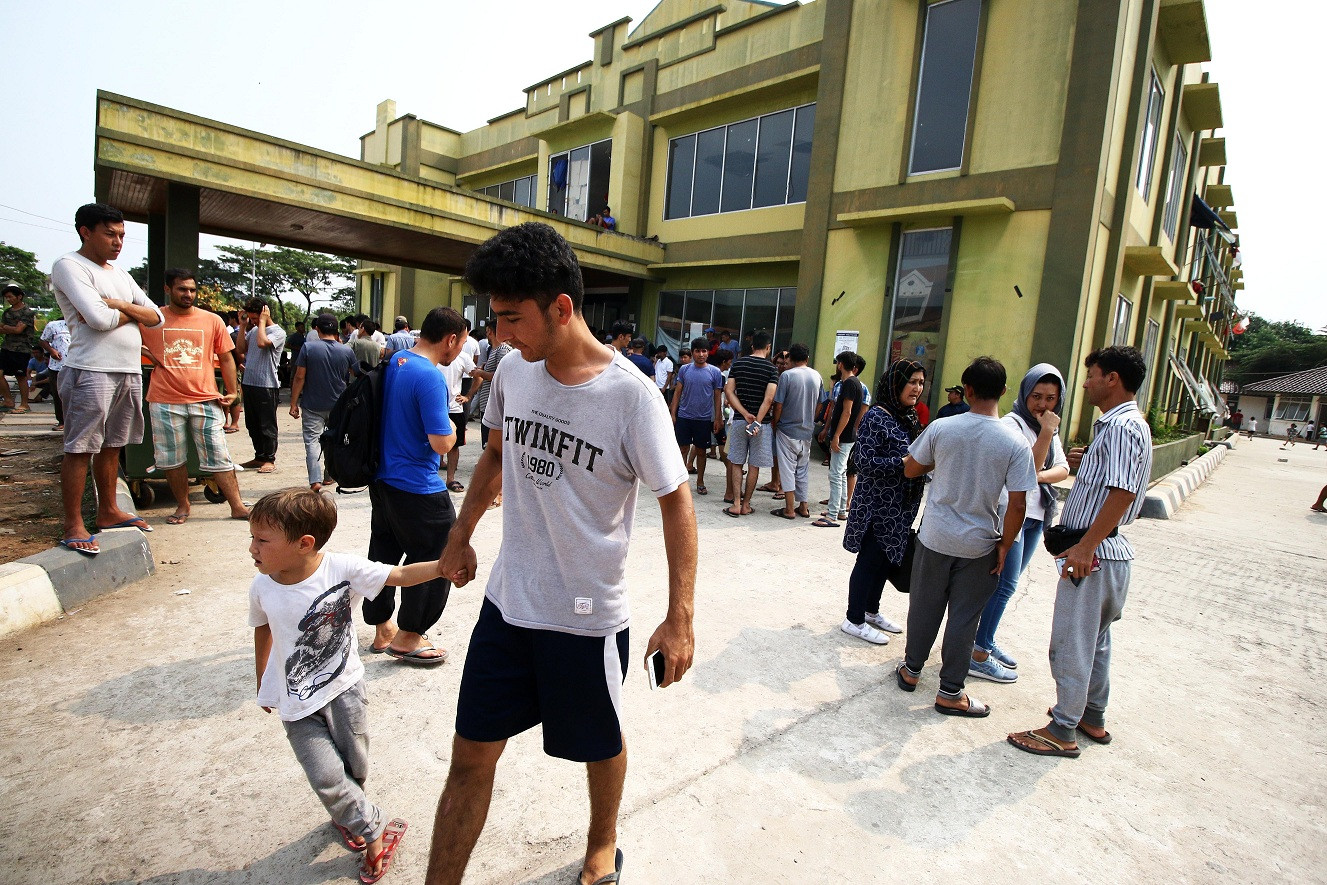Popular Reads
Top Results
Can't find what you're looking for?
View all search resultsPopular Reads
Top Results
Can't find what you're looking for?
View all search resultsUNHCR works to ensure no refugees left behind in COVID-19 crisis in Indonesia
In a bid to prevent the spread of the coronavirus among refugees, the United Nations High Commissioner for Refugees' Indonesia branch has been working with various partners and local governments to distribute sanitation kits including face masks and disinfectants.
Change text size
Gift Premium Articles
to Anyone
A
s the world scrambles to slow the spread of COVID-19, the United Nations High Commissioner for Refugees (UNHCR) in Indonesia is working to ensure that refugees, one of the most vulnerable populations to the virus, are not left behind.
UNHCR representative to Indonesia Ann Maymann said she was closely observing the developments in Indonesia and the country’s response to the virus, which has infected more than 2,000 people in Indonesia and killed 191.
“The well-being of refugees, the persons of concern, are at the center of our prevention and response efforts. Together with our partners, we are coordinating closely with the Indonesian government to ensure that refugees are included in the COVID-19 national response system,” Maymann said on Saturday.
She said that, under the Indonesian government’s protocol, refugees had access to COVID-19-related services, including testing and treatment provided by the Health Ministry.
The refugee groups in the country, she said, had been informed of such protocol, which covers information on prevention measures, symptoms, necessary action and where to look for help.
By January this year, there were 13,623 refugees spread across Indonesia, including Medan, North Sumatra; Pekanbaru, Riau; and Bogor, West Java, according to UNHCR data.
Read also: International refugees in Indonesia explained
Indonesia is home to among the fewest refugees in the world, as most refugees that enter seek resettlement elsewhere.
As a nonparty to the 1951 Refugee Convention, Indonesia is not obligated to receive or take care of refugees. However, Indonesia issued in 2016 a presidential decree that provides legal certainty and standards for government agencies to coordinate and collaborate on the handling of refugees – a move that was lauded by the international community.
Article 26 of the decree stipulates that basic necessities such as clean water, food, clothing, health care, hygiene and religious facilities should be sought from international organizations.
Despite the low number of refugees compared to that of other countries, refugees in Indonesia are vulnerable, with many living in crammed rooms and tents with no access to electricity and running water.
Read also: Refugees in Jakarta near breaking point
In a bid to prevent the spread of the virus among the refugees, UNHCR’s Indonesia office has been working with various partners and local governments to distribute sanitation kits including face masks and disinfectants.
“UNHCR Indonesia provides cash assistance to those most vulnerable and at risk in this current situation to promote improved health and sanitation. With additional funding, the UNHCR aims to also expand this cash assistance to more refugee families,” Maymann said.
She said that many refugees in Indonesia had skills and resources they could offer in the time of crisis.
Some of the refugee women in Medan, supported by partner Mapanbumi, have produced washable face masks that will be distributed to vulnerable Indonesians and those who continue to work outside their homes in order to support themselves and their families. The women aim to produce 1,000 masks for people in Medan.
“The pandemic is a global challenge that must be addressed through national and international solidarity and cooperation. It also serves as a reminder that, in order to effectively address a public health emergency, everyone – including refugees – should be treated in a nondiscriminatory manner,” Maymann said.
After Indonesia implemented travel and transit restrictions for foreign visitors, the number of refugees arriving in Indonesia reduced.
Read also: Indonesia to bar foreigners from entering in bid to curb imported cases
“The number of newly arrived refugees who approached the UNHCR office in Indonesia remains relatively low and the UNHCR continues to follow-up with the government’s counterparts to ensure that the restrictions do not negatively impact asylum access for refugees who are seeking protection in Indonesia,” Maymann said.
Refugee camps abroad, meanwhile, are on high alert as most facilities lack the capacity for testing or supportive treatment.
The International Organization for Migration (IOM) reported Thursday that 23 migrants at the Ritsona camp tested positive for COVID-19. The refugee camp, the first in Greece to be hit by the disease and hosting hundreds of people, was immediately quarantined, Reuters reported.










